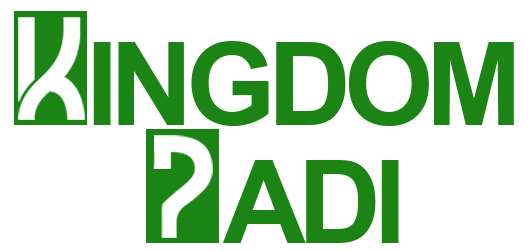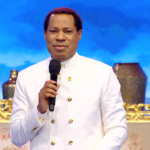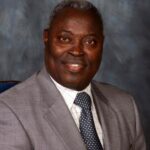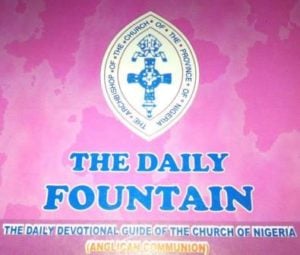Liturgical Readings for : Tuesday, 2nd January, 2024
01-02 Before Epiphany
Memorial of Ss Basil the Great and Gregory Nazianzen, bishops and doctors of the church.
To become ‘children of God’ we must be ‘born again’ from above or ‘born of God’
FIRST READING
A reading from the first letter of St John 2:22-28
Keep alive in yourselves what you were taught in the beginning
The man who denies that Jesus is the Christ-
he is the liar, he is Antichrist; and he is denying the Father as well as the Son,
because no one who has the Father can deny the Son,
and to acknowledge the Son is to have the Father as well.
Keep alive in yourselves what you were taught in the beginning:
as long as what you were taught in the beginning is alive in you,
you will live in the Son and in the Father;
and what is promised to you by his own promise is eternal life. This is all that I am writing to you about the people
who are trying to lead you astray.
But you have not lost the anointing that he gave you,
and you do not need anyone to teach you;
the anointing he gave teaches you everything;
you are anointed with truth, not with a lie,
and as it has taught you, so you must stay in him.
Live in Christ, then, my children,
so that if he appears, we may have full confidence, and not turn from him in shame at his coming.
The Word of the Lord Thanks be to God
Responsorial Psalm Ps 97
Response All the ends of the earth have seen the salvation of our God.
1. Sing a new song to the Lord for he has worked wonders.
His right hand and his holy arm have brought salvation. Response
2. The Lord has made known his salvation; has shown his justice to the nations.
He has remembered his truth and love for the house of Israel. Response
3. All the ends of the earth have seen the salvation of our God.
Shout to the Lord all the earth, ring out your joy. Response
Gospel Acclamation Jn 1: 14, 12
Alleluia, alleluia!
The Word became flesh, and dwelt among us.
To all who received him he gave power to become children of God.
Alleluia!
Or
Alleluia, alleluia!
At various times in the past and in various ways,
God spoke to our ancestors through the prophets;
But in our own times, the last days, he has spoke to us through is son.
Alleluia!
GOSPEL
The Lord be with you. And with your spirit
A reading from the holy Gospel according to John 1:19-28 Glory to you, O Lord
One is coming after me who existed before me.
This is how John appeared as a witness. When the Jews sent priests and Levites from Jerusalem to ask him,
‘Who are you?‘ he not only declared, but he declared quite openly, ‘I am not the Christ’.
‘Well then,’ they asked ‘are you Elijah?‘ ‘I am not’ he said.
‘Are you the Prophet?‘ He answered, ‘No’.
So they said to him, ‘Who are you? We must take back an answer to those who sent us.
What have you to say about yourself?’
So John said, ‘I am,’ as Isaiah prophesied: ‘a voice that cries in the wilderness:
Make a straight way for the Lord’.
Now these men had been sent by the Pharisees, and they put this further question to him,
‘Why are you baptising if you are not the Christ, and not Elijah, and not the prophet?‘
John replied, ‘I baptise with water; but there stands among you – unknown to you – the one who is coming after me; and I am not fit to undo his sandal-strap’.
This happened at Bethany, on the far side of the Jordan, where John was baptising.
The Gospel of the Lord. Praise to you, Lord Jesus Christ.
****************************
Gospel Reflection 2 Jan. Tues. before Epiphany John 1:19-28
The priests and Levites ask John the Baptist two questions in today’s gospel reading, ‘Who are you?’ and ‘Why are you baptizing?’ The more fundamental of the two questions is the first one, because the answer to the first question determines the answer to the second question. It is because of who we are that we do what we do. It was because John was the voice crying in the wilderness to draw people’s attention to the presence of Jesus among them that he was engaged in the water ritual of baptizing that prepared people to receive Jesus with open hearts. The question ‘Who are you?’ is one of the most fundamental questions of life because our identity is the foundation for what we do and why we do it. We all need to keep returning to that question ‘Who am I?’ It can be answered at different levels, ‘I am Irish, I am a bus driver…’ At the deepest level of my being, who am I? What is my deepest identity? John the Baptist was very clear about his deepest identity, which is why, when asked, he could deny that he was the Messiah or Elijah or the Prophet. As the voice, he was the witness to the Word, the light of the world. John the Baptist points us in the direction of our own deepest identity, which is to be a witness to Christ. Saint Paul would even go further and say, ‘It is no longer I who live, but Christ who lives in me’. Our deepest identity is our Christ identity. It is that identity which is to shape all we do and why we do it.
________________________________
The Scripture Readings are taken from The Jerusalem Bible, published 1966 by Darton, Longman & Todd Ltd













